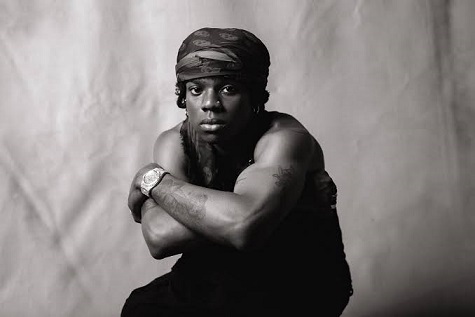
The National Agency for Food and Drug Administration and Control (NAFDAC) has said a comprehensive list of adulterated wines and drinks in circulation.
In response to this concern, NAFDAC said it will embark on an aggressive campaign to educate the public on effective measures to verify the authenticity of the original products. Acting on intelligence, NAFDAC’s Director-General, Prof. Moji Adeyeye, said in a statement that the agency conducted extensive intelligence gathering over several weeks. This proactive approach aimed to collect and collate data on the activities of individuals involved in the production and distribution of substandard and potentially harmful products.
“In collaboration with other security agencies, NAFDAC carried out a sting operation in the market to burst the criminal operations taking place there. It is worthy of note that this dastard activity has been going on for a long time and they operate like a cartel threatening anyone who dares challenge them,” Adeyeye explained.
NAFDAC’s list of identified adulterated products encompasses a broad spectrum, including various wines from popular brands such as Seaman Schnapps, Hennessey, Four Cousins, Carlo Rossi, Jenney, Chelsea London Dry Gin, Schnapp Dry Gin, McDowells, Black Labels, Gordons, Martell, Campari, Smirnoff Ice, Eva Non-Alcoholic Drink, Evra Non-Alcoholic Drink, Cartel, and others.
In addition to exposing the proliferation of fake products, NAFDAC highlights the presence of date revalidation for expired items like Peak milk, powdered milk, Ketchups, Yoghurt, Coca Cola products, and the deceptive packaging of counterfeit and substandard products. These substandard items find their way into the market and are consumed by the public.
Notably, NAFDAC recently intervened by intercepting counterfeiters engaged in the illicit production of various beverages, including wines, soft drinks, and consumables at Eziukwu Market (Cemetery Market) in Aba, Abia State.
As part of its extensive operation, the agency conducted raids on more than 240 shops that had been transformed into makeshift factories, where harmful products were being produced and sold.
The DG highlighted the deplorable conditions of these makeshift factories, describing them as extremely unhygienic. The manufacturing process involved the use of water from unsanitary sources, harmful chemicals, saccharin, coloring agents, dirty recycled bottles, and counterfeit packaging materials mimicking other established brands. The adulteration of alcoholic beverages in the country by criminal elements typically involves the mixing of cheaper sources of sugar and starch, often substituting grapes or fruit. This process may also include the addition of various harmful chemicals that are unsuitable for human consumption.
“Over 1,500 cartons of the fake and substandard products were destroyed during the operation while 300 cartons were evacuated to NAFDAC warehouse. The street value of the confiscated and destroyed fake products is estimated at over N750million. Ten people were arrested on arrival at the scene of the crime and will be charged to court after thorough investigation,” she said.
Given the extensive scale of illegitimate activities within that section of the market, Adeyeye emphasised that NAFDAC took the drastic step of temporarily closing down the market to conduct comprehensive regulatory activities. The closure remained in effect until an agreement was reached with all stakeholders in the market, accompanied by signed undertakings pledging that the market would never be used for such illicit activities again. Adeyeye sternly warned about the severe health risks associated with consuming adulterated alcohol, citing potential adverse effects such as nausea, vomiting, abdominal pain, drowsiness, dizziness, blue-tinged or pale skin, irregular or slow breathing, low body temperature, unconsciousness, kidney and liver failure, or even death.
“Methanol, a substance which can be used in fake vodka, may cause permanent blindness. World Health Organisation (WHO) in their Global Status Report on Alcohol and Health estimated that more than three million people died all over the world as a result of alcohol poisoning. Furthermore, International Agency for Research on Cancer (IARC) ascertained that one of every 10 cancer cases in Nigeria can be traced to Alcohol and 4.7 per cent of overall cancer cases in Nigeria in 2019 can be attributed to consumption of adulterated alcohol,” she disclosed.
Encouraging Nigerians to stay vigilant, the Director-General urged consumers to consistently scrutinise branded drinks carefully to distinguish genuine products from counterfeits before consumption. “NAFDAC wishes to advice that the members of the public should shine their eyes during this yuletide season. We are using this medium to appeal to Nigerians to buy only NAFDAC registered drinks from reputable and licenced retailers, bars and supermarkets. If the product is being sold well below its normal price, or doesn’t seem to include normal taxes on liquors, then it is probably fake. Check for poor quality packaging, spelling mistakes and unusually shaped bottles. Look for the contact information and address of the manufacturer. If it is missing, the alcohol is fake.
“Inspect the seal on the bottle. If the seal is broken or damaged, then the contents might have been interfered with and are not safe to drink. Check for fake bar codes. If you have an app on your mobile that scans bar codes, scan it and see if it’s listed as the correct product and beware of bad smells! If it smells like paint stripper or nail polish remover, then it probably is.”
NAFDAC advises the public to stay vigilant during this festive season. “We appeal to Nigerians to purchase only NAFDAC-registered drinks from reputable and licensed retailers, bars, and supermarkets. If the product is being sold significantly below its normal price or lacks the usual taxes on liquors, it is likely fake.
“Look for poor-quality packaging, spelling errors, and oddly shaped bottles.Verify the contact information and address of the manufacturer; if missing, the alcohol may be fake. Examine the bottle seal; if broken or damaged, the contents may have been tampered with and are unsafe. Check for counterfeit barcodes; scanning with a barcode app can help verify authenticity. Lastly, beware of unpleasant odors. If the drink smells like paint stripper or nail polish remover, it likely is fake.”




